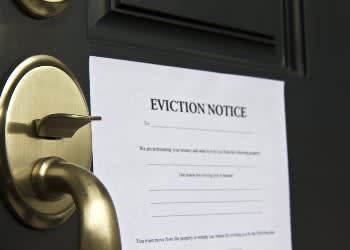Temporary Halt on Evictions
Sept. 9, 2020
 The CDC has issued a new sweeping order that puts a halt to evictions. This order applies to a much broader range of renters than that of the CARES Act, which expired on July 25, 2020. Previously, the CARES Act moratorium on evictions only applied to renters who resided in federally insured or backed housing. As this moratorium was not extended, the CDC issued a new order claiming their authority to do so under section 361 of the Public Health Service Act.
The CDC has issued a new sweeping order that puts a halt to evictions. This order applies to a much broader range of renters than that of the CARES Act, which expired on July 25, 2020. Previously, the CARES Act moratorium on evictions only applied to renters who resided in federally insured or backed housing. As this moratorium was not extended, the CDC issued a new order claiming their authority to do so under section 361 of the Public Health Service Act.
This order provides a halt to all evictions of any “covered person” in any residential property. In order for a renter to show that they are a “covered person”, the renter must provide a sworn statement asserting all of the following:
Best efforts were used to obtain all available governmental assistance for rent or housing;
Expected earnings for 2020 are no more than $99,000 (or $198,000 for a couple), or the individual was not required to file taxes in 2019 or received a stimulus check under the CARES Act;
Individual was unable to make a full rent or housing payment due to loss of substantial household income, loss of wages or hours, lay-off, or extraordinary out of pocket medical expenses;
Individual is making best efforts to make timely partial payments; AND
Eviction would likely result in homelessness or force individual to live in close quarters in a new congregate or shared living situation due to lack of other options.
However, there are several concerns about this order. It does not prevent the landlord from charging and collecting late fees, interest and other penalties associated with the non-payment of rent included in the rental agreement after this freeze expires on December 31, 2020. Should the government fail to provide further assistance to troubled renters, then it is unlikely that they will have the funds to catch up on four months of rent when this order is set to expire. It also does not prevent a landlord from evicting a tenant for other reasons not related to the non-payment of rent, including criminal activity, posing a threat to other residents, damaging property and others.
Additionally, there are questions regarding the legality of this order and whether the CDC has exceeded the scope of their authority. Challenges to this order may be brought and the outcome of those challenges remains unclear. And evictions continue to be pursued. So far, in Davidson County, Tennessee as of this writing, at least 61 evictions were filed today alone and a total of 145 evictions filed this week.
Although the outcome of any litigation remains unclear, if you find yourself facing an eviction, it is a good idea to assert the rights you may have under this order by filing the sworn statement declaring all of the elements required as long as they apply to you. It is also a good idea to consult with an attorney, if possible. Local resources may also be able to provide assistance in halting these evictions. The Legal Aid Society of Middle Tennessee & the Cumberlands includes on their website helpful information and links that can assist you, as well.
